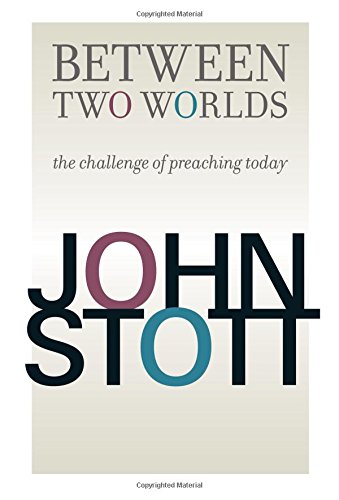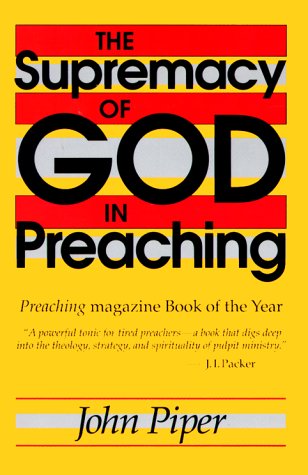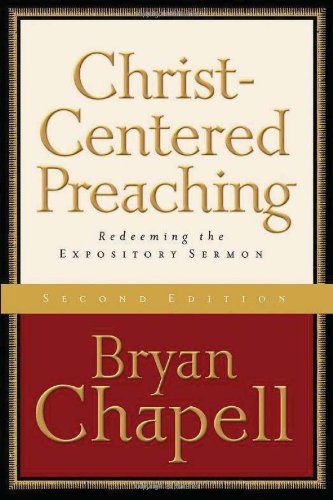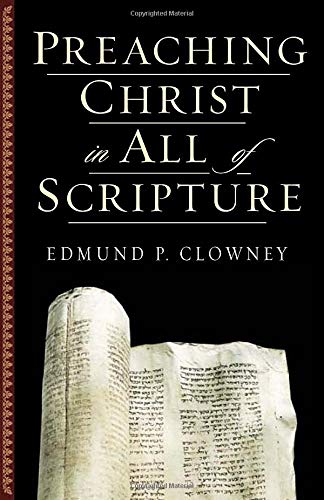Quotes about Preaching-Christ
Today, one of the greatest threats to evangelical preaching comes from the invasion of the church by Adler-Maslow, etc., self-image, self-worth dogmas. Passage after passage in the Bible has been distorted in order to conform to these teachings, with the result that you end up preaching man and his supposed worth rather than Christ. Sometimes that “worth” has been seen as intrinsic, sometimes it has been considered to be the result of salvation.
Preaching With Purpose, Zondervan, 1982, p. 188. Get this book!
No man who is full of himself can ever truly preach the Christ who emptied Himself.
I never got away from Jesus, and Him crucified, and I found that when my people were gripped by this great evangelical doctrine of Christ and Him crucified, I had no need to give them instructions about morality. I found that one followed as the sure and inevitable fruit of the other… I find my Indians begin to put on the garments of holiness and their common life begins to be sanctified even in small matters when they are possessed by the doctrine of Christ and Him crucified.
When Paul preached “the cross” he preached a message which explained that this instrument of rejection had been used by God as His instrument of reconciliation. Man’s means of bringing death to Jesus was God’s means to bring life to the world. Man’s symbol of rejecting Christ was God’s symbol of forgiveness for man. This is why Paul boasted about the cross!
There is a center to the Bible and its message of grace. It is found in Jesus Christ crucified and resurrected. Grace must therefore be preached in a way that is centered and focused on Jesus Christ Himself, never offering the benefits of the gospel without the Benefactor Himself.
The evidence that I preach Jesus Christ as Lord is found not so much in my declarations as it is in the manifestation of that Lordship in my life and preaching – when I, who am His bondslave, am willing to be and actually become in my preaching, the bondslave of others for Jesus’ sake (2 Corinthians 4:5).
We are called to be cruciformed (shaped by the cross), Christophers (bearing the Christ of the cross), and Christplacarders (setting Christ and Him crucified on display, cf. Galatians 3:1) in our preaching of Christ.
Jesus Christ can only be preached as the crucified one, and no one can preach Christ crucified to win personal renown.
1 Corinthians, Baker, 2003, p. 84. Get this book!
Paul’s matter-of-fact acknowledgment, born of twenty years of first-hand experience, that the message he was preaching – that salvation as to be had through a crucified God – was considered by everyone to be either deeply obscene or totally, completely, tin-foil-hat ridiculous.
The Gospel – God’s Self-Substitution for Sinners by Greg Gilbert, taken from Don’t Call it a Comeback, edited by Kevin DeYoung, copyright 2011, Crossway Books, a division of Good News Publishers, Wheaton Illinois 60187, www.crosswaybooks.org, page 72. Get this book!
Surely Paul could have made the gospel more palatable – and less dangerous – by saying it was about something else. Something cleaner and less ridiculous than the cross. Something more glorious. Less disgusting. He didn’t do that, though. “I decided,” Paul said, “to know nothing among you except Jesus Christ and Him crucified” (1 Cor. 2:2). In the face of the worst cultural prejudice imaginable, he fixed the entire gospel squarely and immovably on the fact that Jesus was tacked to a stauros and left to die. If he had been trying to find a surefire way to turn first-century people off from his “good news,” he couldn’t have done better than that! So why did he do it? It’s simple. He did it because he knew that leaving the cross out, or running past it with a glance, or making it peripheral to the gospel, or allowing anything else to displace it at the center of the gospel would make it, finally, no gospel at all.
The Gospel – God’s Self-Substitution for Sinners by Greg Gilbert, taken from Don’t Call it a Comeback, edited by Kevin DeYoung, copyright 2011, Crossway Books, a division of Good News Publishers, Wheaton Illinois 60187, www.crosswaybooks.org, page 73. Get this book!
For Paul, preaching “Christ crucified” has a much broader meaning than focusing every sermon on Jesus’ suffering on the cross. The cross of Christ is indeed the focal point for Paul’s preaching, but, as Paul’s sermons and letters demonstrate, the cross of Christ reveals much more than the suffering of Jesus. It also provides a viewpoint on the perfect justice of God and the dreadful catastrophe of human sin.
If Jesus Christ is the head of the church and hence the source and goal of its entire life, true growth is only possible in obedience to Him. Conversely, if the church becomes detached from Jesus Christ and His Word, it cannot grow however active and successful it may seem to be.
The cross stands for all that was accomplished through the life, death, and resurrection of Jesus, the Son of God. It focuses on His substitutionary death at Calvary but includes everything that gave meaning to that act. His preexistent state in glory. His incarnation. His life of perfect obedience. His suffering. His resurrection. His ascension. His present intercession and reign in glory. His triumphant return.
Worship Matters, Crossway Books, 2008, Crossway Books, a division of Good News Publishers, Wheaton Illinois 60187, www.crosswaybooks.org, p. 72. Get this book!
If the cross is not foolishness to the lost world then we have misrepresented the cross.
Whenever the true message of the cross is abolished, the anger of hypocrites and heretics eases…and all things are in peace. This is a sure token that the devil is guarding the entry of that house, and that the pure doctrine of God’s Word has been taken away. The church, then, is in the BEST state when Satan assaileth it on every side…both with subtle sleights, and outright violence. And (likewise) it is in the WORST state, when it is most at peace!
If I allow my work to get between my heart and the Master, it will be of little worth. We can only effectually serve Christ as we are enjoying Him. It is while the heart dwells upon His powerful attractions that the hands perform the most acceptable service to His name; nor is there anyone who can minister Christ with unction, freshness, and power to others, if he is not feeding upon Christ in the secret of his own soul. True, he may preach a sermon, deliver a lecture, utter prayers, write a book, and go through the entire routine of outward service, and yet not minister Christ. The man who will present Christ to others must be occupied with Christ for himself.
The best exhortation I know concerning (preaching Christ) comes from the great Baptist preacher, Charles Spurgeon, who, in speaking to his students about expository preaching, told them to preach the text as the text and, as soon as possible, you make a beeline to the cross and show its fulfillment in Jesus Christ.
Feed My Sheep, ed. Don Kistler, Soli Deo Gloria Ministries, 2002, p. 24. Get this book!
I would not give much for all that can be done by sermons if we do not preach Christ by our lives.
Where Christ is truly preached, there is the gospel; and where the gospel is truly believed, there is the church (Mark Ross).
Puritan preaching revolved around “Christ, and Him crucified” – for this is the hub of the Bible. The preachers’ commission is to declare the whole counsel of God; but the cross is the center of that counsel, and the Puritans knew that the traveler through the Bible landscape misses his way as soon as he loses sight of the hill called Calvary.
The Puritans in Ministry taken from A Quest for Godliness by J.I. Packer, copyright 1990, Crossway Books, a division of Good News Publishers, Wheaton Illinois 60187, www.crosswaybooks.org. Page 286.
[The heart of all preaching is] to preach one Christ, by Christ, to the praise of Christ.
Preach one Christ by Christ to the praise of Christ.
The whole of the preaching of Jesus Christ and His apostles is concerned with the kingdom of God.
Next to Christ I have one joy: to preach Christ my Lord.
Some Christians misunderstand God’s plan for His kingdom. They want to establish it their own way rather than waiting for God to do it His way. God’s way of establishing the kingdom is primarily through the preaching of the cross. But that does not seem very effective to most people. They would prefer to use force, which is the kind of thinking that leads to bloody crusades. Or they would rather entertain people into the kingdom, which is the kind of thinking that leads to man-centered worship.
I believe that those sermons which are fullest of Christ are the most likely to be blessed to the conversion of the hearers. Let your sermons be full of Christ, from beginning to end crammed full of the Gospel. As for myself, brethren, I cannot preach anything else but Christ and His Cross, for I know nothing else, and long ago, like the Apostle Paul, I determined not to know anything else save Jesus Christ and Him crucified. People have often asked me, “What is the secret of your success?” I always answer that I have no other secret but this, that I have preached the Gospel – not about the Gospel, but the Gospel – the full, free glorious Gospel of the living Christ is the incarnation of the Good News. Preach Jesus Christ, brethren, always and everywhere; and every time you preach be sure to have much of Jesus Christ in the sermon. Whenever I get hold of a text, I say to myself, “There is a road from here to Jesus Christ, and I mean to keep on His track till I get to Him.” “Well,” said the young man, “but suppose you are preaching from a text that says nothing about Christ?” “Then I will go over hedge and ditch but what I will get at Him.” So must we do, brethren; we must have Christ in all our discourses, whatever else is in or not in them. Those who do not like Jesus Christ must have Him preached to them till they do like Him; for they are the ones who need Him most.
The best sermons are the sermons which are most full of Christ. A sermon without Christ it is an awful, a horrible thing; it is an empty well; it is a cloud without rain; it is a tree twice dead, plucked by the roots. It is an abominable thing to give men stones for bread, and scorpions for eggs, and yet they do so who preach not Jesus. A sermon without Christ! As well talk of a loaf of bread without any flour in it. How can it feed the soul? Men die and perish because Christ is not there, and yet His glorious gospel is the easiest thing to preach, and the sweetest thing to preach; there is most variety in it, there is more attractiveness in it than in all the world besides!
The sermon which does not lead to Christ, or of which Jesus Christ is not the top and the bottom, is a sort of sermon that will make the devils in hell laugh, but make the angels of God weep.
Whatever subject I preach, I do not stop until I reach the Savior, the Lord Jesus, for in Him are all things.
The preaching of Christ is the whip that flogs the devil. The preaching of Christ is the thunderbolt, the sound of which makes all hell shake.
I do believe that we slander Christ when we think that we are to draw the people by something else but the preaching of Christ crucified. We know that the greatest crowd in London has been held together these thirty years by nothing but the preaching of Christ crucified. Where is our music? Where is our oratory? Where is anything of attractive architecture, or beauty of ritual? “A bare service,” they call it. Yes, but Christ makes up for all the deficiencies.
If I only had one more sermon to preach before I died, it would be about my Lord Jesus Christ. And I think that when we get to the end of our ministry, one of our regrets will be that we did not preach more of Him. I am sure no minister will ever repent of having preached Him too much.
A sermon without Christ as its beginning, middle and end is a mistake in conception and a crime in execution.


























